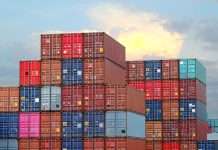 Biden Administration Releases Trade Policy Priorities for 2023
Biden Administration Releases Trade Policy Priorities for 2023
This week the U.S. Trade Representative submitted to Congress the Biden administration’s trade policy agenda for 2023 and annual report on how the office has worked to implement the administration’s trade priorities.
The 2023 Trade Policy Agenda and 2022 Annual Report of the President of the United States on the Trade Agreements Program released on March 1 is a 354-page report submitted to the Congress pursuant to the Trade Act of 1974 and prepared by the office of the U.S. Trade Representative (USTR).
“USTR’s worker-centered trade agenda is realizing President Biden’s vision to grow the American economy from the bottom up and the middle out,” said U.S. Trade Representative Katherine Tai.
Citing enforcement of the U.S.-Mexico-Canada Agreement and “creating innovative trade arrangements with our allies and partners” as examples, Ambassador Tai said the administration “will continue to pursue an agenda that will deliver sustainable and inclusive economic prosperity for all.”
The USTR press release notes that the USTR put the Biden administration’s vision into practice in 2022 by launching and negotiating historic trade arrangements with partners in the European Union and Kenya, as well as:
- The Indo-Pacific Economic Framework for Prosperity: USTR and the U.S. Department of Commerce are negotiating an innovative trade framework with 13 countries in the Indo-Pacific region that, combined with the United States, represent 40% of global gross domestic product (GDP). The IPEF will tackle 21st century challenges, particularly those exposed during the COVID-19 pandemic and Russia’s invasion of Ukraine.
- U.S.-Taiwan 21st Century Trade Initiative: The United States and Taiwan, under the auspices of the American Institute in Taiwan (AIT) and the Taipei Economic and Cultural Representative Office in the United States (TECRO), are negotiating a new trade framework that will deepen longstanding economic and cultural ties.
- Americas Partnership for Economic Prosperity: Announced in June 2022, the Americas Partnership includes 11 other countries that represent about 90% of the Western Hemisphere’s GDP and nearly two-thirds of its people. This initiative will drive the region’s economic growth and broadly shared prosperity, tackle the core issues that will define the coming decades, and galvanize greater economic cooperation in the hemisphere.
The USTR fact sheet lists key elements of the 2023 Trade Policy Agenda and 2022 Annual Report as including:
- Engaging with key trading partners and multilateral institutions.
- Standing up for workers’ rights,
- Accelerating decarbonization and promoting sustainable environmental practices.
- Supporting U.S. agriculture.
- Bolstering supply chain resiliency.
- Re-aligning the U.S.-China trade relationship.
- Promoting confidence in trade policy through enforcement.
- Advancing equitable, inclusive, and durable trade policy and expanding stakeholder engagement.
Trade Statistics
In 2022, the United States exported a record total of $2.06 trillion in goods to the world and imported $3.24 trillion, creating a goods deficit of $1.18 trillion. U.S. exports increased by 17.56% in 2022, while imports also increased by 14.65%.
California’s $185.55 billion of exports in 2022 was an increase of 6.07% from the previous year’s total of $174.9 billion, according to U.S. Department of Commerce statistics. California’s top five export markets remained the same in 2022, in order: Mexico, Canada, China, Japan and South Korea. For 2022, California’s import trade totaled $508.75 billion, an increase of 8.17% from the previous year.
CalChamber Trade Priorities
The California Chamber of Commerce, in keeping with a longstanding free trade agenda and policy, supports expansion of international trade and investment, fair and equitable market access for California products abroad, and elimination of disincentives that impede the international competitiveness of California business.
Specifically, the CalChamber asks that:
- Trade be a priority.
- The revamp of the World Trade Organization address the functioning of the Appellate Body, and support efforts to ensure our trading partners adhere to fair and transparent trade practices while being held accountable when they violate international rules.
- The focus continue on lowering tariffs and nontariff barriers to support the expansion of American exports.
- Trade Promotion Authority is renewed to enable the United States to easily pursue new trade deals.
- Bilateral, regional, and multilateral trade agreements — which are critical to consumers, workers, businesses, farmers and ranchers — continue to be advanced.
Trade as a Priority
California is one of the 10 largest economies in the world with a gross state product of more than $3.5 trillion.
International trade and investment are a major part of the economic engine for the state of California that broadly benefits businesses, communities, consumers and state government. California’s economy is more diversified than ever before, and the state’s prosperity is tied to exports and imports of both goods and services by California-based companies, to exports and imports through California’s transportation gateways, and to inflows and outflows of human and capital resources.
Accordingly, promoting the ability of California companies to compete more effectively in foreign markets continues to be a high priority for the CalChamber, along with attracting foreign business to the state.
Supporting global trade is about helping Main Street businesses. Most exporting firms in California are small and medium-sized businesses. The jobs created in these trade-reliant sectors pay higher wages than their nontrade-related counterparts and create additional jobs in nontraded industries, such as restaurants, retail, hospitality and others.
Staff Contact: Susanne T. Stirling

